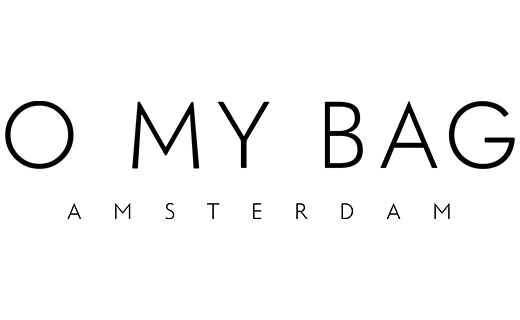

O My Bag

North Holland, Netherlands The
September 2021
Leather & related products
Wholesale/Retail
Netherlands The
O My Bag was founded in 2011 as a social enterprise with the aim to not only be profitable, but also to give back by approaching business in a fair, environmentally friendly and responsible manner. By using business as a force for good O My Bag wants to create a positive difference in the world - one bag at a time. O My Bag believes that by supporting conscious trade it can contribute to a better world with fair working environments, equal opportunities and respect for the environment. The headquarters is based in Amsterdam, but O My Bag is available in 27 countries worldwide. The bags and accessories are handmade in Kolkata, India, where O My Bag has long term relations with 4 manufacturers that all share O My Bag's mission. Together, they work on more jobs for women, better working conditions, higher wages and the promotion of women to higher positions. The eco-leather, that is tanned without harmful chemicals, is sourced from two certified partner tanneries, that work with the highest sustainability standards. To ensure that this symbiotic relationship between O My Bag and its suppliers flows back to the Indian communities rather than being a purely transactional relationship, O My Bag donates 1% of its annual revenue to social impact projects in and around Kolkata.
Overall B Impact Score
Governance 16.2
Governance evaluates a company's overall mission, engagement around its social/environmental impact, ethics, and transparency. This section also evaluates the ability of a company to protect their mission and formally consider stakeholders in decision making through their corporate structure (e.g. benefit corporation) or corporate governing documents.
What is this? A company with an Impact Business Model is intentionally designed to create a specific positive outcome for one of its stakeholders - such as workers, community, environment, or customers.
Workers 27.6
Workers evaluates a company’s contributions to its employees’ financial security, health & safety, wellness, career development, and engagement & satisfaction. In addition, this section recognizes business models designed to benefit workers, such as companies that are at least 40% owned by non-executive employees and those that have workforce development programs to support individuals with barriers to employment.
Community 53.2
Community evaluates a company’s engagement with and impact on the communities in which it operates, hires from, and sources from. Topics include diversity, equity & inclusion, economic impact, civic engagement, charitable giving, and supply chain management. In addition, this section recognizes business models that are designed to address specific community-oriented problems, such as poverty alleviation through fair trade sourcing or distribution via microenterprises, producer cooperative models, locally focused economic development, and formal charitable giving commitments.
What is this? A company with an Impact Business Model is intentionally designed to create a specific positive outcome for one of its stakeholders - such as workers, community, environment, or customers.
Environment 28.3
Environment evaluates a company’s overall environmental management practices as well as its impact on the air, climate, water, land, and biodiversity. This includes the direct impact of a company’s operations and, when applicable its supply chain and distribution channels. This section also recognizes companies with environmentally innovative production processes and those that sell products or services that have a positive environmental impact. Some examples might include products and services that create renewable energy, reduce consumption or waste, conserve land or wildlife, provide less toxic alternatives to the market, or educate people about environmental problems.
Customers 4.0
Customers evaluates a company’s stewardship of its customers through the quality of its products and services, ethical marketing, data privacy and security, and feedback channels. In addition, this section recognizes products or services that are designed to address a particular social problem for or through its customers, such as health or educational products, arts & media products, serving underserved customers/clients, and services that improve the social impact of other businesses or organizations.